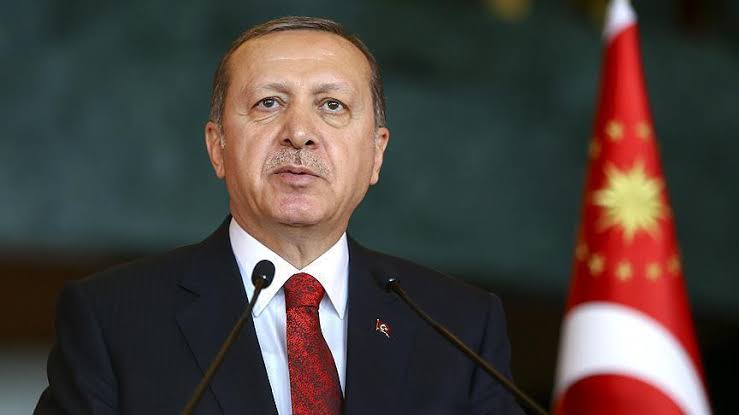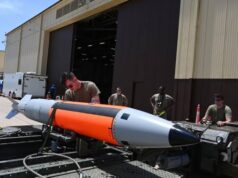Türkiye’s strategic expansion in Africa opportunities and challenges

Turkish President Recep Tayyip Erdoğan once remarked, “Türkiye wants to walk alongside Africa as a new world order is being established.”
This statement encapsulates Ankara’s evolving policy towards Africa amid shifting geopolitical currents. As global power rivalries reshape the continent, Türkiye is carving out a strategic role, blending economic diplomacy, military cooperation, and soft power initiatives to strengthen its presence.
Africa is experiencing a profound shift in power dynamics, particularly following France’s military withdrawals from the Sahel and West Africa.
This power vacuum has prompted new and emerging players, including Türkiye, to expand their influence alongside established actors such as the United States, China, and Russia.
While great powers continue to compete for dominance, Türkiye is leveraging its position as a middle power to gain a foothold in Africa.
The geopolitical shifts in Syria and Ukraine have forced Russia to recalibrate its strategy in Africa. While Moscow initially appeared to benefit from Western withdrawals, the instability caused by these conflicts has opened new opportunities for other actors, including Türkiye.
China, which sees Africa as a critical base for its global expansion, also presents stiff competition for Ankara’s ambitions on the continent.
Türkiye’s involvement in Africa has not been limited to diplomatic and economic pursuits; it has also expanded its military and security cooperation.
In 2017, Türkiye established a military base in Mogadishu, Somalia, at a cost of $50 million. This base, strategically positioned near the Indian Ocean, mirrors the military presence of the United States and China in Djibouti.
Türkiye’s influence in Africa is particularly evident in the security sector. Many African countries have expressed interest in acquiring Turkish-made defense equipment, particularly drones and armored vehicles.
Niger, Mali, Burkina Faso, and Chad have procured Turkish drones to bolster their counterinsurgency capabilities. Türkiye has also signed security cooperation agreements with numerous African nations and has deployed military advisors to Chad’s Abeche base following France’s withdrawal from the country in early 2024.
Despite its military involvement, Türkiye is keen to avoid being perceived as a security-first actor. Instead, it is integrating its military engagements within a broader strategy that includes economic investments, education initiatives, and diplomatic mediation.
Beyond military engagement, Türkiye is also focused on economic expansion and diplomatic influence. Since the early 2000s, Türkiye has rapidly increased its diplomatic footprint on the continent.
The number of Turkish embassies in Africa has grown from just 12 in 2003 to 44 in 2023. This expansion reflects Türkiye’s broader ambition to enhance its engagement with African states and secure their support in international platforms such as the UN General Assembly.
The economic aspect of Türkiye’s African outreach is equally significant. Between 2003 and 2023, Türkiye’s trade with Africa surged from $1.35 billion to $12.4 billion, a nearly tenfold increase.
Türkiye-Africa trade relations emphasize South-South cooperation, aiming to establish a mutually beneficial economic framework.
Türkiye hosts an annual Türkiye-Africa Summit to institutionalize its engagements, strengthening economic and political ties with African nations.
Various African governments have actively sought Turkish investments. For instance, Tanzania’s Foreign Minister Mahmoud Thabit Kombo recently requested Türkiye’s support for a major electrification project aimed at providing electricity to 300 million Africans by 2030.
Similarly, Uganda has invited Turkish firms to invest in shipbuilding and port development to boost tourism and trade. These developments underscore Türkiye’s growing economic clout on the continent.
Türkiye is leveraging soft power to solidify its influence in Africa. Education plays a crucial role in this approach, with Türkiye offering scholarships for African students to study at its universities.
Many of these students have gone on to hold influential positions in their home countries, including ministerial roles in Somalia and even the presidency in Ethiopia.
In addition to education, Türkiye is positioning itself as a mediator in African conflicts. It successfully brokered a deal between Ethiopia and Somalia and is now seeking to mediate in Sudan’s ongoing civil war.
Türkiye has also offered to mediate in the long-standing conflict between Rwanda and the Democratic Republic of Congo. Such diplomatic initiatives help Türkiye project itself as a reliable partner for conflict resolution in Africa.
Humanitarian aid is another pillar of Türkiye’s soft power strategy. Turkish aid agencies, such as the Turkish Cooperation and Coordination Agency (TIKA), have been active in Africa, providing food aid, infrastructure development, and healthcare services.
This humanitarian engagement helps Türkiye build goodwill and deepen its relationships with African nations.
Despite its ambitious outreach, Türkiye’s African strategy faces several challenges. One of the primary hurdles is the financial sustainability of its African engagements.
As Türkiye grapples with economic difficulties at home, maintaining large-scale investments and security commitments in Africa may prove challenging.
Additionally, Türkiye faces competition from other global and regional actors. China’s extensive Belt and Road Initiative (BRI) has positioned it as Africa’s largest trade partner, offering infrastructure financing and development projects that Türkiye struggles to match.
Russia, despite facing setbacks, remains a key player in Africa’s security landscape through Wagner Group operations and military partnerships.
Another challenge is the risk of overextension. Türkiye’s involvement in multiple African regions-from the Sahel to the Horn of Africa-requires substantial diplomatic, economic, and military resources.
Spreading itself too thin could weaken Türkiye’s effectiveness and limit its long-term influence.Furthermore, Türkiye must navigate complex local politics.
African countries have historically been cautious about external involvement in their affairs. Türkiye must ensure that its engagements are perceived as mutually beneficial rather than as neo-colonial endeavors. Striking this balance is crucial to maintaining positive relations with African states.
Türkiye’s engagement with Africa is driven by a combination of diplomatic, economic, security, and soft power ambitions.
As global power rivalries reshape the continent, Ankara sees an opportunity to establish itself as a key partner for African nations.
By increasing its trade, expanding diplomatic missions, investing in infrastructure, and deepening security cooperation, Türkiye is solidifying its role as a significant player in Africa’s evolving geopolitical landscape.
However, challenges such as financial constraints, competition from China and Russia, and the complexities of African politics necessitate a careful and sustainable strategy.
As Türkiye continues to navigate these obstacles, its ability to balance economic, military, and soft power approaches will determine the success of its long-term African outreach.
Ultimately, Türkiye’s involvement in Africa represents both opportunities and risks. If Ankara can maintain a nuanced and adaptable approach, it may well achieve its goal of becoming a prominent actor on the continent.
As Africa continues to play a central role in global geopolitics, Türkiye’s investments today may yield significant dividends in the years to come.




